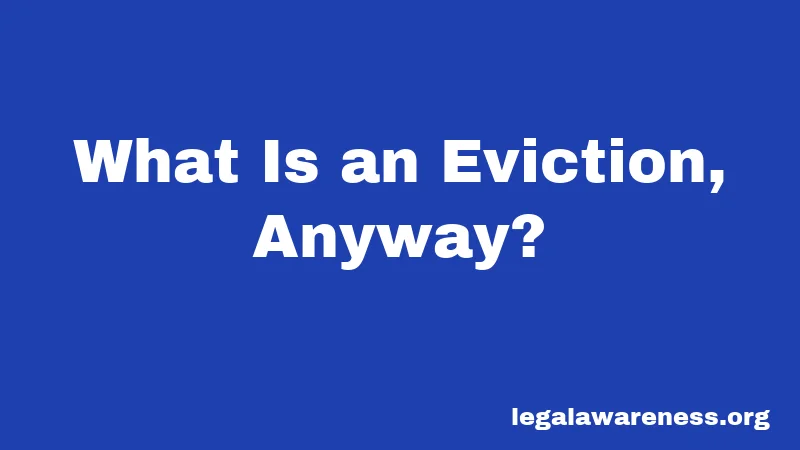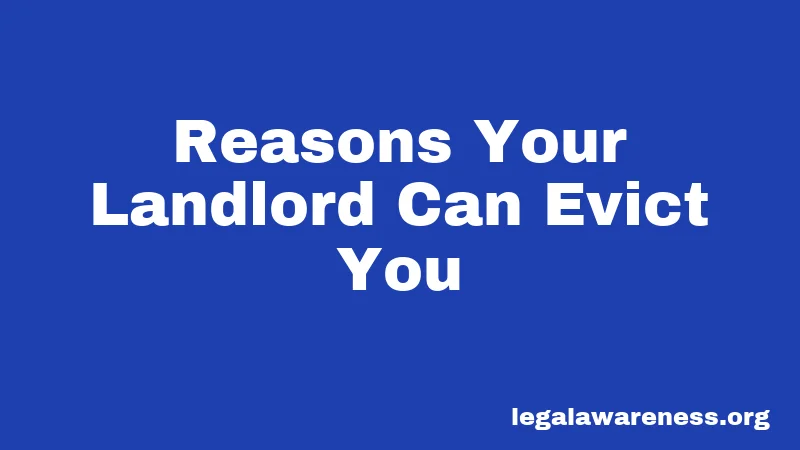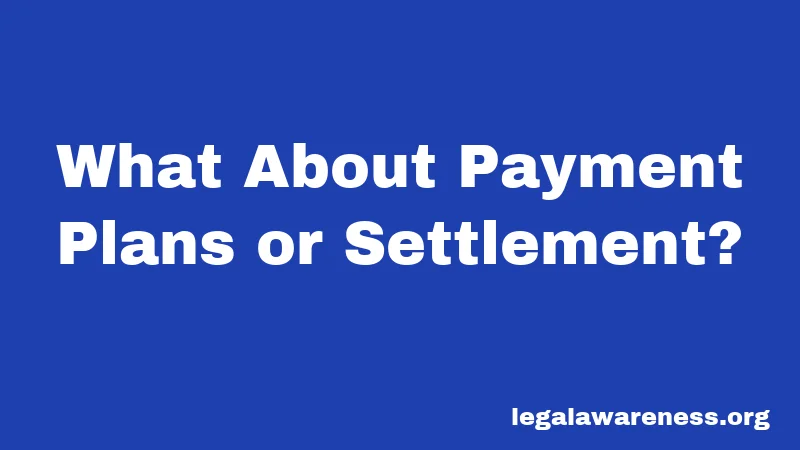New Jersey Eviction Laws in 2026: Step-by-Step Protection Guide
Most people have no idea how strict eviction laws actually are. If you’re a tenant in New Jersey, understanding these rules could literally save your home. If you’re a landlord, knowing the right steps will protect your investment and keep you from making costly mistakes.
Let’s break down everything you need to know about New Jersey evictions. No legal jargon, no confusion, just straight facts.
What Is an Eviction, Anyway?

An eviction is when a landlord takes legal action to remove a tenant from the property. Here’s the key part: your landlord cannot just kick you out. That’s illegal. Only a court can order an eviction, and only a special officer can physically remove someone from a home.
Think of it like this. Your landlord owns the building, but they have to follow the law. The law protects both of you.
The 5-Day Rent Grace Period (This Is Important)
Okay, pause. Read this carefully.
In New Jersey, rent isn’t actually late until five business days after it’s due. This is huge. If rent is due on the first of the month, it’s not considered late until the sixth. That’s your grace period.
But here’s where it gets tricky. If a landlord has never accepted late rent in the past, they don’t have to give you any warning before filing for eviction. They can go straight to court.
However, if the landlord has accepted late rent payments in the past, they must first give the tenant a written 30-day notice to quit.
Late fees? They cap out at 5% of your monthly rent. That’s the maximum allowed. Your lease should spell this out.
Reasons Your Landlord Can Evict You

Not every reason gives your landlord the right to evict. New Jersey law is pretty specific about when eviction is actually allowed.
Non-Payment of Rent
This is the most common eviction reason. Can’t pay rent? Your landlord can start the process. But remember that five-day grace period we talked about.
Here’s what most people don’t realize. If you pay all the rent owed within three days after a removal warrant is posted, the case gets dismissed. That’s your escape hatch. Use it.
Breaking Your Lease Agreement
Damaging the property, keeping unauthorized pets, smoking where you shouldn’t—these are lease violations. Your landlord has to give you a chance to fix the problem first. They’ll serve you a “Notice to Cease,” telling you exactly what needs to change.
If you don’t fix it? Then they can give you a 30-day notice to quit.
Illegal Activity
This one’s serious. Criminal activity on or near the property gets you a 3-day notice. No second chance. New Jersey law considers illegal activity such as substance abuse, theft, assault, trafficking, and illegal services.
If you don’t leave in three days, they file for eviction immediately.
Disorderly Conduct
Basically, if you’re disturbing the peace or injuring the property, you get a 3-day notice. This covers excessive noise, fighting, or willfully damaging things.
You’re Holding Over (Month-to-Month or After Lease Ends)
Sound complicated? It’s actually not. If the landlord wishes to end a month-to-month tenancy, the landlord must give the tenant a written one-month notice.
If you don’t move by the end of that month, they can file for eviction.
The Court Process (What Actually Happens)
This part affects both landlords and tenants. Here’s the reality: eviction takes time.
Your landlord starts by filing a complaint in the Special Civil Part of Superior Court. They pay a filing fee (usually $90 to $150, depending on your county). Then you get your day in court.
Here’s what’s important to know. The NJ eviction process includes 2 separate court meetings: (1) a Case Management Conference (may be a hearing online); and (2) is an in-person Trial.
Missing the first meeting? Your case gets dismissed. Landlord misses it? Your case gets dismissed. Show up.
At trial, the judge hears both sides. If you don’t appear, the landlord gets a judgment against you. That’s basically game over.
What About Payment Plans or Settlement?

You can actually settle before trial. Don’t be shy about this. If an agreement is decided upon by both parties, court staff can assist in submitting the appropriate forms to the Judge. If the Judge approves the settlement, the case is over.
Sometimes a payment plan works. Sometimes an agreement to repair damage works. Talk to your landlord or get a lawyer to help you negotiate.
What You Cannot Do (Illegal Self-Help Evictions)
Your landlord absolutely cannot do any of this stuff. Not allowed. It’s a crime:
Changing your locks while you’re still in the lease. Turning off utilities to force you out. Removing doors or windows. Throwing your belongings on the street.
Wondering if your landlord is doing this right now? Call the police immediately. Also call Legal Services of New Jersey at 1-888-576-5529. They help people fight illegal evictions.
Tenant Defenses (You Have Rights)
Here’s the thing about New Jersey law: you’re not helpless. You have actual defenses.
Habitability Issues: Your apartment must be safe to live in. If the heat doesn’t work, the roof leaks, or there’s mold, you might be able to withhold rent. This is called the Marini Doctrine.
But here’s the catch. Habitability cannot be used to avoid eviction for a pattern of late rent payments, noise or pet violations, or any other reason the landlord might give for an eviction.
Discrimination: Your landlord cannot evict you because of race, religion, national origin, disability, or family status. That violates federal law.
Retaliation: Did you report housing code violations? Ask for repairs? Your landlord cannot evict you as punishment. That’s illegal.
Proper Notice: If your landlord didn’t give you the right notice or didn’t follow the correct procedure, that’s a defense. This is why documentation matters.
Local Right-to-Counsel Laws
Pay attention to this one. Some New Jersey cities are changing the rules.
Many local jurisdictions in New Jersey, such as Jersey City, either have implemented or are implementing programs which give a tenant a right to legal counsel in eviction situations.
If you live in one of these areas, your landlord might have to notify you of your right to an attorney. This is huge. It means you can get legal help for free or low cost. Check your local court website to see if your city participates.
What Happens After Eviction
Trust me, this gets pretty serious.
Once the court orders you evicted, you have to leave. Only the sheriff can physically remove a squatter from your property. For regular evictions, the same applies. No one else can force you out legally.
If you leave behind personal belongings, your landlord has to notify you. The landlord must send the tenant notice through the mail (either certified mail or receipted first class) informing the tenant that the tenant has 33 days to claim the property or the landlord will dispose of it.
An eviction stays on your record. Future landlords will see it. It’s hard to rent again. Really hard.
How to Protect Yourself: What You Should Do
Okay, this is the practical stuff.
Keep written records of everything. Text messages, emails, photos of damage, receipts for repairs. Everything. If things go to court, documentation wins cases.
Pay rent on time, every time. Yes, there’s a grace period, but don’t rely on it. Make paying rent the first priority.
Follow your lease. Read it carefully. If you’re confused about something, ask. No unauthorized roommates. No unauthorized pets. No violations.
Request repairs in writing. Don’t just tell your landlord something’s broken. Send an email or text. Keep it documented. If it’s a serious habitability issue and they ignore it, you have options.
Know your rights. You’re not alone. This confuses a lot of people. Organizations like Legal Services of New Jersey exist specifically to help tenants. Use them.
If you’re struggling financially, call 211. You can contact NJ 211 by calling (simply dial 2-1-1), texting (send your zip code to 898-211), emailing ([email protected]), or by chatting online at www.nj211.org. They can connect you with rental assistance programs.
For Landlords: Following the Process Correctly
Here’s the deal. You have to follow every single step. Missing one can get your case dismissed and cost you time and money.
Provide written notice. Every eviction starts with proper written notice. The type and timing depend on the reason.
Keep records. Document everything. Late payments, lease violations, communication attempts. You’ll need this in court.
File correctly. Your complaint must be filed in the Special Civil Part of Superior Court in the county where the property is located. Attach all required documents.
If you’re a business entity, get a lawyer. The law requires it. Corporations, LLCs, and partnerships must have legal representation in court.
Don’t try self-help eviction. You’ll face serious penalties. It’s not worth it.
Special Circumstances
Tenants with Terminal Illness
Here’s where New Jersey’s law shows real compassion. The Superior Court may authorize and review one year stays of eviction during which the tenant shall be entitled to renew the lease at its term of expiration, subject to reasonable changes proposed to the tenant by the landlord in written notice, whenever: The tenant fulfills all the terms of the lease and the tenant has a terminal illness which illness has been certified by a licensed physician.
This is powerful. If you’re facing eviction for simply holding over (not paying rent), and you have a terminal illness certified by a doctor, you might get a year to stay while finding new housing.
Seasonal and Transient Tenants
If you’re renting a hotel room or seasonal property, different rules apply. Short-term stays don’t get the same protections as long-term rental agreements.
Proposed Changes Coming
Honestly, this is the part most people miss. As of August 2025, New Jersey hasn’t passed any new eviction laws, but a few key proposals are on the table. Most notably, the Renters’ Rights Bill (A5432) and suggested changes to court forms could reshape how evictions work in the state.
These proposals might require landlords to give tenants more notice, provide information about legal counsel, and strengthen tenant protections. Keep an eye on this. Laws change.
Frequently Asked Questions
How long does an eviction take in New Jersey? It varies, but typically 2-4 months from start to finish. Court backlogs, complexity of the case, and whether the tenant contests it all affect timing. Some cases drag on longer.
Can my landlord evict me without going to court? No. Absolutely not. Only a court order through the Special Civil Part of Superior Court makes an eviction legal. Anything else is an illegal lockout.
What if I can’t afford a lawyer? Contact Legal Services of New Jersey at 1-888-576-5529 or visit www.lsnjlaw.org. They provide free legal help to people who qualify based on income.
If I pay the rent owed before trial, does the eviction go away? It depends. If you pay within three days of the warrant being posted, yes, the case is dismissed. If you pay later but before trial, the judge might dismiss it. Better to pay early.
Can my landlord evict me for any reason? No. They need a legal reason listed in New Jersey law. “I want you out” isn’t a valid reason unless your lease or tenancy has ended.
What’s the difference between a Notice to Cease and a Notice to Quit? A Notice to Cease tells you to stop doing something (like violating the lease). If you fix it, you’re fine. A Notice to Quit says you have to leave within the stated time period (usually 30 days). That’s the final warning before eviction.
Do I have the right to have a lawyer in eviction court? Yes. And increasingly, some jurisdictions are making sure you know about it. You can hire a lawyer or get free help from Legal Services of New Jersey if you qualify.
What happens to my belongings if I get evicted? The landlord must notify you and give you 33 days to collect them. After that, they can sell or dispose of them. But they have to send you proper notice first, either by certified or receipted first class mail.
Final Thoughts
New Jersey’s eviction laws exist to protect both landlords and tenants. For tenants, they ensure you can’t be kicked out illegally or without cause. For landlords, they provide a clear legal path when tenancy issues arise.
The biggest thing to remember? Everything must go through court. There are no shortcuts. No illegal lockouts. No forcing people out.
If you’re a tenant facing eviction, don’t panic. Get help immediately. Contact Legal Services of New Jersey or your local court. Many areas now guarantee access to legal counsel. Use it.
If you’re a landlord, follow the process exactly. Document everything. Give proper notice. File correctly. Work with an attorney if you’re a business entity. Cutting corners costs way more than doing it right.
Stay informed, stay safe, and when in doubt, get legal advice.
References
New Jersey Courts – Landlord/Tenant Information
Legal Services of New Jersey – Free Legal Help
New Jersey Department of Community Affairs – Housing Programs
NJ 211 – Rental Assistance and Community Resources
New Jersey Statutes Title 2A, Chapter 18 – Landlord-Tenant Law
